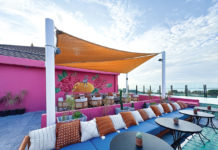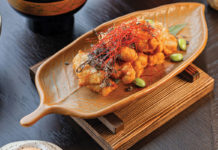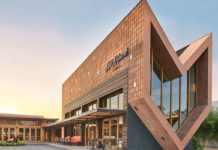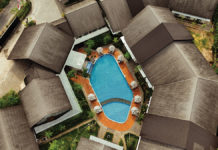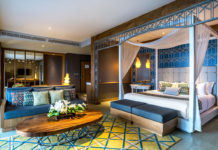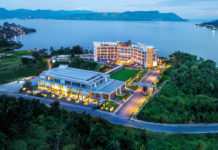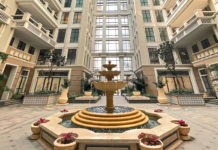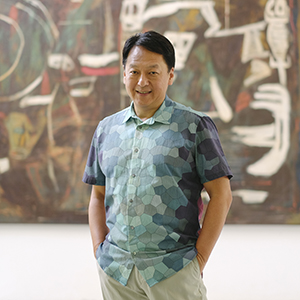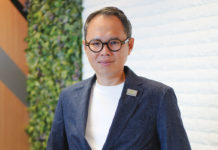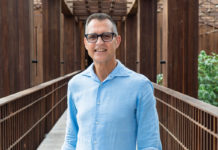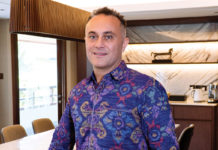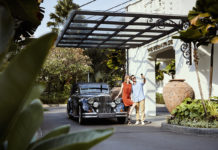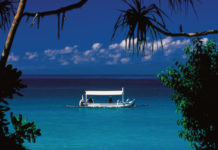“I am never afraid of competition, competition only makes us stronger.”
Although Indonesia is renowned for its rich culture and age-old traditions, the hospitality industry is slowly progressing towards a more modernistic approach, often favouring contemporary, universal designs over the unique interiors and manual crafts found here in Indonesia.
Standing up against this trend, Padma Hotels is the Indonesian-born brand that pays homage to its homeland. Established more than 25 years ago when it launched Padma Resort Legian in Bali, still to this day Padma Hotels remains at the forefront of the region’s hospitality industry.
Following the most recent opening of Padma Resort Ubud in February, the group’s third location, we wanted to learn more about the secret of the Padma Hotels reign. We were lucky enough to talk to Padma Hotels’ director of operations, Tjipjanto Soerjanto, about the brand’s legendary history. We talked about the ongoing strive for perfection, the value of respecting the land and the importance of preserving The Indonesian Dream.
Q: Today you’re the director of operations for one of Indonesia’s finest hotel brands, but how did you first enter into the hospitality industry?
A: When I was studying for my MBA in the US, the opportunity to join Padma Hotels arose. At that time I didn’t have any hotel experience so I moved back to Jakarta to the Hilton to work as duty manager and later as sales executive to gain a couple of years’ experience. After that I joined the Padma group when Padma Resort Legian was still being constructed. We didn’t even have an office so it was my duty to establish the office, begin the sales and marketing and start building the team from the ground up. I went from director of sales and marketing to financial controller, then to general manager and now I stand as director of operations.
Q: You oversee the three Padma resorts in Bandung, Legian and Ubud, as well as the Padma-managed hotel in Karawang. What signature Padma touches can guests find at all three locations and what is totally unique to each?
A: What you can find in every Padma hotel is a local and friendly team. In every resort we incorporate the local culture according to the location itself – we are a wholly local brand so we are proud of our nation. In Bandung we have a lot of West Javanese touches, whilst Legian and Ubud are both very Balinese in terms of architecture and interiors. I started to get into gardening about 15 years ago, so we also really work on the landscapes as this is an important element for a resort. I’ve brought lots of exotic plants from around Indonesia and they just keep growing! In terms of difference though, the atmosphere at each location is unique. In Ubud the view is pure nature with larger, more airy rooms, whilst in Legian guests can enjoy the surrounding buzz of restaurants and bars, yet experience total serenity once inside. In the city of Bandung, we’re all about treating our weekenders and business travellers to magnificent meeting and conference facilities.
Q: With hotels in different cities, how you you manage your time between the three?
A: I spend most of my time in Bali, especially at Padma Resort Legian, and I go to Jakarta once a month with side trips to Bandung and Karawang. It’s still manageable at this time, but as we continue to expand we will need to also grow our team. It’s definitely a challenge for us as we’re a local team that’s going national.
Q: So what does a typical working day look like for you?
A: In the morning I do the usual hotel checks, but since I also handle the corporate matters, I’m involved in lots of renovation projects too. This means dealing with architects, interior designers, landscapers and consultants, so it’s not really the typical day you might expect from a director of operations. Either way, I always make sure I end my day with a good one-hour swim to stay healthy and balanced.
Q: Padma Resort Ubud recently opened this February. Can you tell us more about the concept and what guests can look forward to when staying at the resort?
A: The concept is about total relaxation for our guests: not only luxury accommodations, but also going back to nature. We believe in preserving the land so the total area of the hotel is 20 hectares but the built-up area is less than 10 percent. It’s surrounded by lots of natural greenery and resembles a botanical garden with plenty of space for our guests to enjoy. If guests don’t want to leave the resort, they don’t have to because within the property we are able to offer lots of outdoor activities like trekking and cycling around the forests and rice fields, as well as luxury facilities like our spa and gourmet dining destinations.
Q: You have fabulous artwork pieces in each Padma location, but what’s your favourite aspect of Padma Hotels?
A: I love the artwork too, especially the sculptures we have in the garden of Padma Resort Legian, like the signature Balinese dragon in the garden. I happen to know a lot of the artists as all of them are Indonesian – we haven’t purchased any art internationally. Collecting art is so addictive – once you see a great piece it’s difficult to resist.
Q: It seems that with every hotel you open, success follows. What’s the secret?
A: It’s all about evolving and maintaining a continued dedication to quality. Our mission is to always create the most memorable experiences for our guests and to create the best resort possible.We might never achieve perfection – as no one really ever does – but we always aspire to it.
Q: So how do you see Padma Hotels faring over the years within Indonesia’s competitive hotel industry?
A: I am never afraid of competition; competition only makes us stronger. We just do our best to always reinvent ourselves and think about what we will do next.
Q: What’s next on the horizon for you? Do you have any other projects you’re working on?
A: We have plans to expand further. We will continue the Indonesian dream for now and open more four- and five-star hotels in major cities around the archipelago, especially within Java. The resorts will stay in Bali for now, but city hotels in Surabaya are certainly on the horizon.
Q: And finally, what advice would you give to budding hospitality entrepreneurs?
A: You’ve got to have passion – otherwise forget about it!


